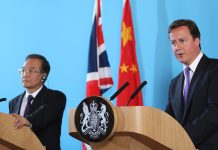Europe will face a cancer epidemic in the next decade if weaknesses in cancer health systems and cancer research are not urgently addressed, say the authors of a major new report.
The large-scale collaborative research project warns that prioritising cancer research is crucial for European countries to deliver more affordable, higher quality, and more equitable cancer care.
With an estimated one million cancer diagnoses missed across Europe in the last two years, the impact of the COVID-19 pandemic is predicted to set back European cancer outcomes by almost a decade, it states.
Commissioned by The Lancet Oncology, the report, which is titled European Groundshot—addressing Europe’s cancer research challenges, highlights the pivotal importance of cancer research in tackling the unprecedented challenges facing European cancer systems and makes key recommendations for how this can be achieved.
The report brings together a wide range of patient, scientific, and health-care experts with detailed knowledge of cancer research activity across Europe.
The European Groundshot Commission analysed the impact of the COVID-19 pandemic, the Russian invasion of Ukraine, and Brexit on cancer research across Europe.
It found that clinicians saw 1.5 million fewer patients with cancer in the first year of the pandemic, with one in two not receiving surgery or chemotherapy in a timely manner. Additionally, 100 million cancer screening tests were missed, and it is estimated that up to one million European citizens might have an undiagnosed cancer due to the cancer backlog. It recommends that the European cancer research community should accelerate the research response to the indirect impacts of the COVID-19 pandemic on cancer and that, now more than ever, there is a crucial need to ensure that cancer is appropriately protected and prioritised within current and future European research agendas.
Russia and Ukraine are two of the largest contributors to clinical cancer research in the world, and the conflict will likely result in many major trials being delayed or failing to recruit. The Commission recommends that, as a matter of extreme urgency, the European cancer community must gather data on the impact of the conflict on patients, cancer services, medicines and other shortages, and workforce gaps, in Ukraine and in neighbouring countries, as well as developing a plan to mitigate the impact of the war on cancer research.
And an analysis of data comparing EU28 (UK included) versus EU27 (UK not included) research activity found a significant gap, one the Commission suggests is extremely unlikely to be bridged by increased research activity from the remaining EU27. The Commission advises that funders and researchers in Europe should mitigate the impact of Brexit and other political challenges by ensuring that the UK can continue to collaborate with European partners and contribute to European cancer research and innovation activities.
Professor Selby,Professor of Cancer Medicine in the Leeds University School of Medicine said:
“Around one million cancer diagnoses were missed across Europe in the last two years. This is predicted to set back European cancer outcomes by almost a decade. Our report makes practical policy suggestions to begin to solve these problems of disadvantage, underinvestment and lack of political focus and ambition, for the benefit of patients and their families.
“We are calling for a significant reprioritisation of cancer prevention, cancer screening, and early cancer detection, which we estimate can prevent around 40% of cancers. We must work towards a more equitable agenda where all citizens and patients, no matter where they live, will benefit equally from advances in cancer research.
“Our work at Leeds has included substantial collaboration with partners across the UK and internationally, providing leadership to a series of initiatives to improve the wellbeing and health outcomes of Europe’s Cancer patients. These have included the European Cancer Patients’ Bill of Rights, the European Code of Cancer Practice and now the European Cancer Research Groundshot Commission.
“We hope that these together can help shape future cancer research and care in a patient centred manner and bring real benefits.”
The report identifies gaps in the European cancer research landscape and calls for a doubling of the European cancer research budget, as well as prioritisation of underserved cancer research areas, including prevention and early diagnosis, radiotherapy and surgery, implementation science, action on gender equality, and a deeper focus on survivorship.
Professor Mark Lawler, Queen’s University Belfast, UK and Chair and lead author of the Commission, said: “With the backdrop of the COVID-19 pandemic, Brexit, and the Russian invasion of Ukraine, it is more important than ever that Europe develops a resilient cancer research landscape to play a transformative role in improving prevention, diagnosis, treatment, and quality-of-life for current and future patients and those living beyond cancer.
“We estimate that approximately one million cancer diagnoses were missed across Europe during the COVID-19 pandemic. We are in a race against time to find those missing cancers. Additionally, we saw a chilling effect on cancer research with laboratories shut down and clinical trials delayed or cancelled in the first pandemic wave. We are concerned that Europe is heading towards a cancer epidemic in the next decade if cancer health systems and cancer research are not urgently prioritised. Our European Groundshot Commission provides crucial findings on the current landscape of cancer research, exposes the key gaps, and demands the prioritisation of European cancer research agendas over the next decade”.







